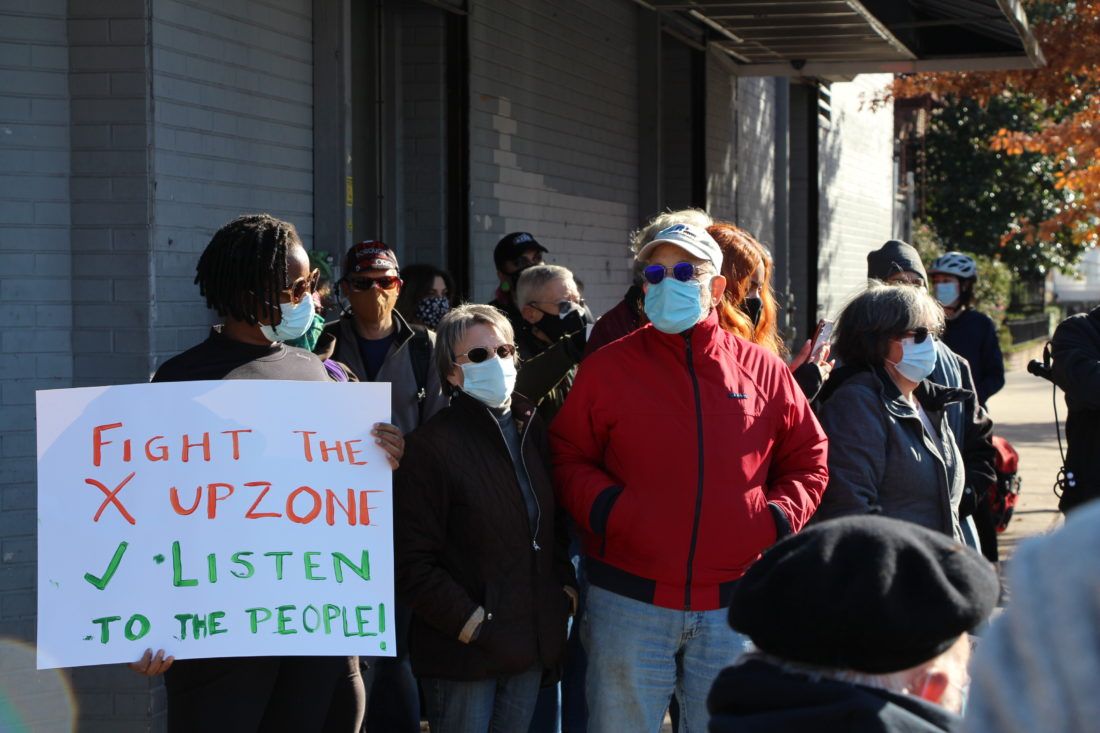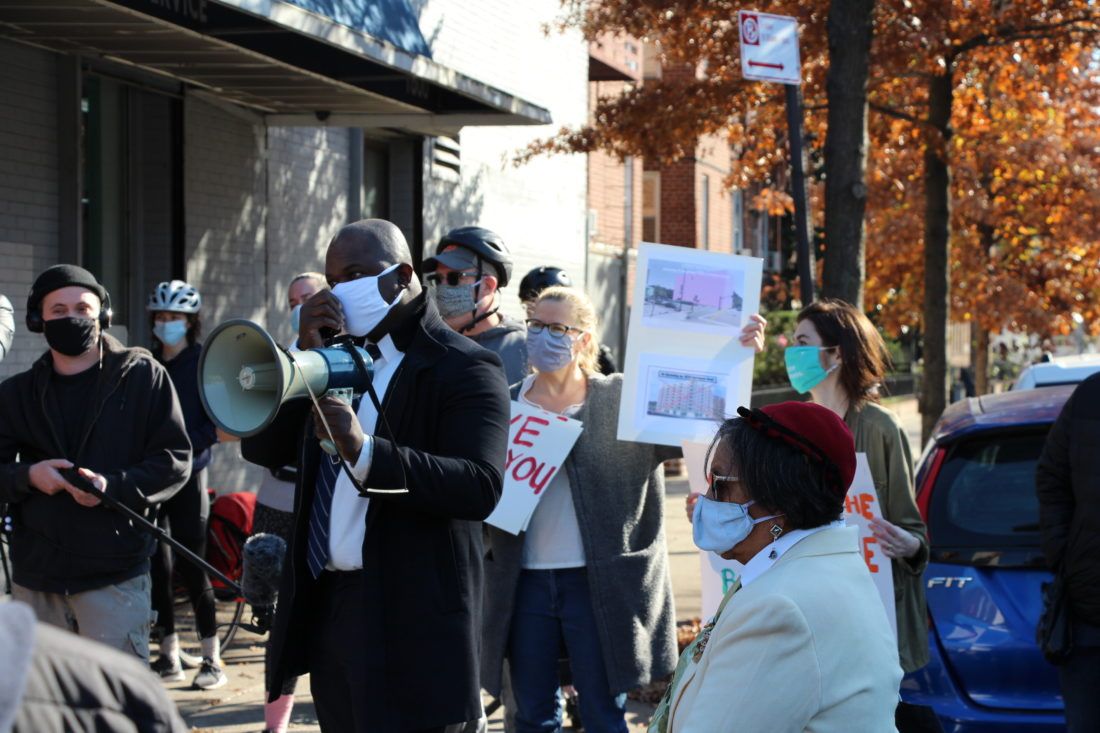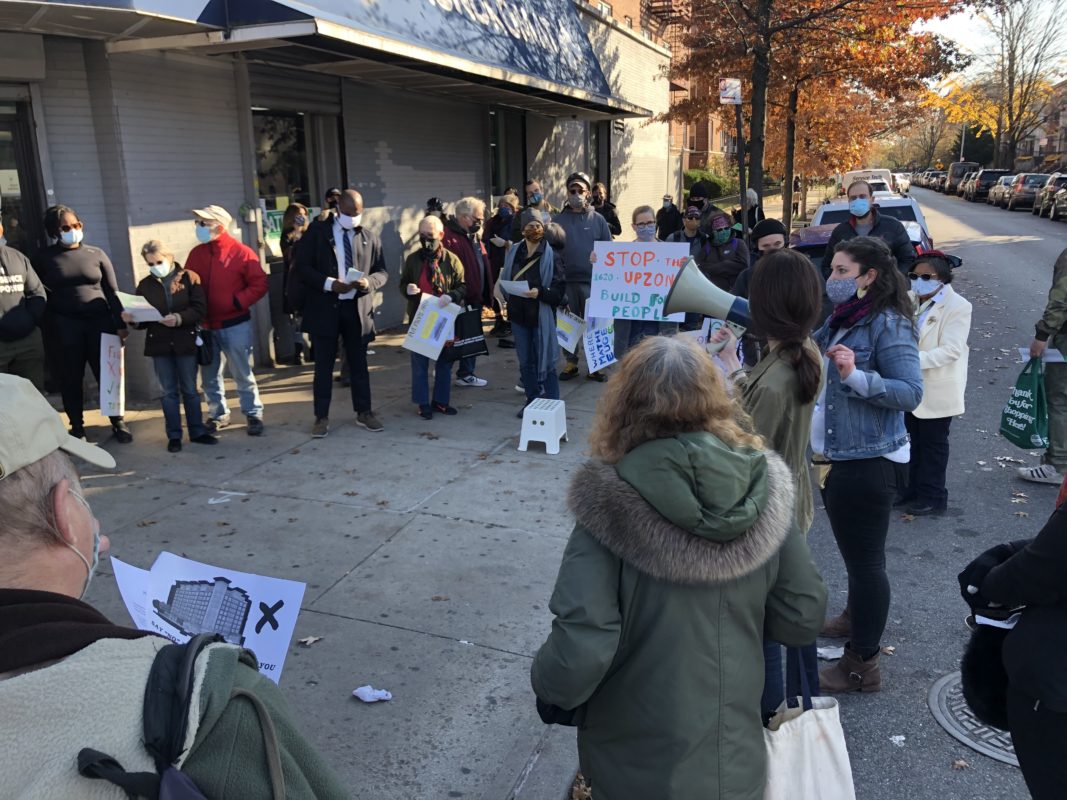Letter To The Editor: Save Cortelyou Road From Proposed Development


By John Oros, a neighborhood resident and member of Save Cortelyou, a grassroots organization dedicated to community-centric development for the Ditmas Park/Flatbush neighborhood.
Last week, Community Board 14 gave the green light to undo the 2009 comprehensive zoning plan for 1620 Cortelyou Road, better known as the home of Key Food and a local laundromat.
Your November 11th article asserted that “the community at large seems to support the plans [to redevelop],” from the owner, Tony Doleh, which calls for a 9-story residential development.
But there has been a groundswell of grassroots opposition to the upzoning.
Community members have spoken out to the borough president, formed Facebook groups, connected with existing community groups, and even staged a socially distant rally on Saturday, November 14th with over 100 participants.
While CB14 has moved this plan to the next phase of the Uniform Land Use Review Process (ULURP), this development is not a foregone conclusion and urgent action is needed to make sure elected officials hear the community’s concerns before it is too late.
The development will harm our neighborhood in the short term (uprooting nearly a block of businesses and putting working class folks out of work) and long term (insufficient affordable housing as a backdoor bargain to usher in outsized development).
Misrepresentation + Short Term Effects

While ambitious, the renderings and floor plans of Doleh’s ULURP Application are incomplete and not fully resolved for city planning.
Wonky technical requirements like egress corridors, window lot, and bulkhead accommodations are not met, but more importantly, the plan lacks a comprehensive plan to address the onsite storage of chemicals from the dry cleaning facility on the lot.
It begs the question, why hasn’t Doleh, as the current owner, addressed this, and, what will the effect of discarding those chemicals during construction be on the neighborhood?
Assuming those issues get addressed, the real-life harm to the working-class residents of our community, if the project goes forward, are significant. Nearly a full block of businesses–including the Key Foods and Laundromat–will be closed for 18-24 months, as scaffolding and drilling equipment congest Cortelyou Road.
Neighbors will be out of work. The affordable supermarket will be closed to make way for a 44-car underground garage.
Mr. Doleh and his lawyer, Richard Lobel have mischaracterized what the zoning entails. They claim that the rezoning for 7D will only be a modest difference for the neighborhood – a 102-foot height compared to the 95 feet allowed by the R7A zoned sites, a few blocks to the south.
But the referenced R-7A sites are occupied by stabilized coops and rentals, which are roughly 60 feet in height, unlikely to ever be re-developed, and if they were to be, as the current 7A zoning stands, additional qualifying conditions would need to be met.
What Doleh is asking for, 7D, has no such requirements. His building would stretch to nearly double the height of the tallest existing residential buildings in the area, destroying the mainstreet feel of the Cortelyou and thwarting some residents’ plans, in at least one co-op and another single-family home, to install solar panels on their roofs.
But maybe, all of this is a small price to pay for the right kind of development for our neighborhood and city? Surely, affordable housing and long-term planning come with short-term inconveniences? That’s certainly not a guarantee as it stands.
Affordable Housing + Long-Term Precedence

To be blunt, the current zoning does not prohibit Mr. Doleh from building affordable housing units. There are existing tax incentives and programs for developers to build affordable housing, without upzoning and these have expanded under Mayor de Blasio.
Affordable housing is an ongoing and complicated issue facing our city but what’s deemed ‘affordable’ can be used as a bargaining chip to sneak in out-of-character luxury developments into neighborhoods in the ULURP process.
As the current proposal stands, the developer has moved forward with the most basic, mandatory inclusion housing option. The argument being: “let me build higher and I’ll build more affordable housing.”
However, there is nothing binding in this option [as it stands] to prohibit all the affordable units to go to studios or one-bedrooms, when the real demand for affordable housing is with larger 2-to-3 bedroom apartments to keep families in our neighborhood.
Second, the metrics to define “affordable” do not paint the most accurate picture. For years, housing advocates have voiced concerns about how AMI (area median income) works, and legislators, like our district’s Yvette Clarke, are finally taking some action. Advocates assert that this metric calculates what is “affordable” by treating all five boroughs as a monolithic area, instead of taking a focused neighborhood-by-neighborhood account of what affordability actually looks like.
Rehauling the neighborhood will undoubtedly have long-term effects. With 60-70% of units being market rate (read: luxury rentals), it begs the question — do we even need these or will they lay empty like rentals in Manhattan? And even if they remain empty, the development could very well drive rent up incrementally for current residents, as high-rises have done in Manhattan and Brooklyn.
The best way to bring affordable housing to our neighborhood is to develop within the parameters of 1620’s current zoning, or to put immense pressure on the Community Board, City Council, and Borough President to be prescriptive in what the community needs before granting such an exception.
Mr. Doleh should not get a carte blanche to build higher but does have an opportunity to come to the table in a more genuine community-first way.
Not Too Late
The next step in the ULURP process is Eric Adams’s recommendation as Borough President which is due December 2nd — he’s also running for Mayor. Then–the City Planning Commission hearing will likely be on December 9th. Meanwhile, the community can reach out to Councilmember Mathieu Eugene, who will likely be the most influential officeholder to stop this, when the City Council votes.
If you want to get involved: Send an email to subscribe: savecortelyou+subscribe@googlegroups.com or go to: Facebook.com/SaveCortelyou.



